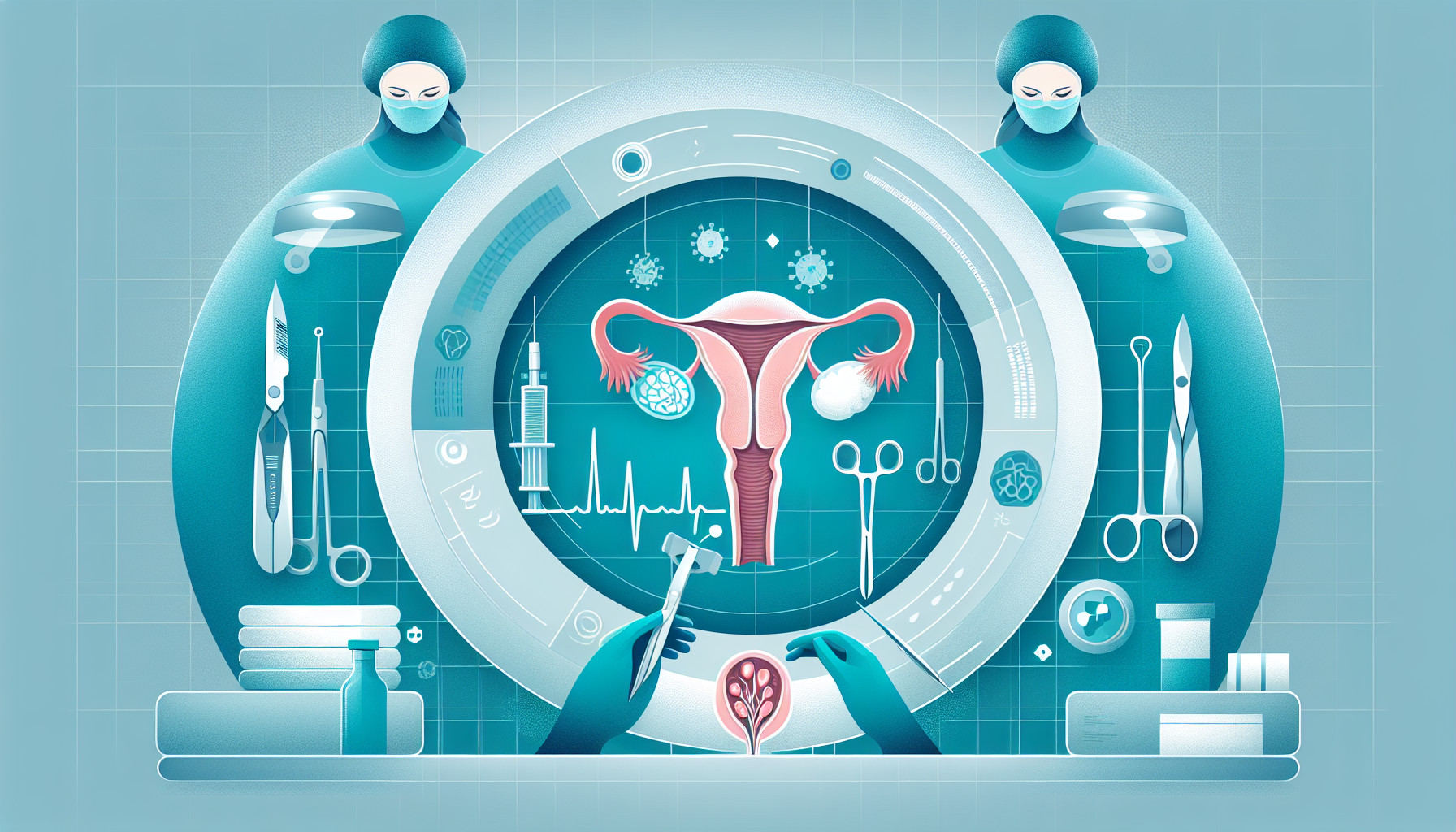Our Summary
This study investigated the impact of different medical treatments on the size of ovarian endometriomas, a type of cyst that can form on the ovaries in people with endometriosis. By analyzing numerous studies, the researchers found that several medications, including dienogest, oral contraceptive pills, gonadotropin-releasing hormone agonists, norethindrone acetate, norethindrone acetate with an aromatase inhibitor, and danazol, can significantly reduce the size of these cysts. This means that these treatments can be effective in managing ovarian endometriomas.
FAQs
- What are the different medications found to reduce the size of ovarian endometriomas?
- How effective are these treatments in managing ovarian endometriomas?
- What is an ovarian endometrioma and who is at risk of developing one?
Doctor’s Tip
Additionally, it’s important for patients to follow their doctor’s post-operative instructions carefully after ovarian cyst removal. This may include avoiding strenuous activities, taking prescribed medications, and attending follow-up appointments. It’s also important to report any unusual symptoms or complications to your doctor promptly. By following these recommendations, patients can help ensure a successful recovery and minimize the risk of complications.
Suitable For
Patients who are experiencing symptoms such as pelvic pain, bloating, irregular menstrual cycles, and infertility due to ovarian cysts are typically recommended ovarian cyst removal. Additionally, patients who have cysts that are large in size, persisting over time, causing complications such as torsion or rupture, or showing signs of malignancy are also candidates for surgical removal of ovarian cysts. Ultimately, the decision to recommend ovarian cyst removal will depend on the individual patient’s symptoms, overall health, and the specific characteristics of the cyst.
Timeline
Before ovarian cyst removal:
Symptoms: The patient may experience symptoms such as pelvic pain, bloating, discomfort during intercourse, irregular menstrual cycles, and changes in bowel habits. These symptoms can vary in severity depending on the size and type of ovarian cyst.
Diagnosis: The patient will undergo various diagnostic tests such as ultrasound, MRI, or CT scan to confirm the presence of an ovarian cyst and determine its size and location.
Treatment options: The patient may be prescribed pain medication to manage symptoms or hormonal birth control pills to help shrink the cyst. In some cases, surgery may be recommended if the cyst is large, causing severe symptoms, or if there are concerns about the possibility of cancer.
After ovarian cyst removal:
Recovery: The patient will typically stay in the hospital for a few hours to a few days after the surgery, depending on the type of procedure performed. They may experience some pain and discomfort, which can be managed with pain medication.
Follow-up care: The patient will have follow-up appointments with their healthcare provider to monitor their recovery and ensure that there are no complications. They may also be advised to avoid strenuous activities for a certain period of time to allow the body to heal properly.
Symptom relief: In many cases, the removal of the ovarian cyst will alleviate the symptoms that the patient was experiencing before the surgery, such as pelvic pain and bloating. The patient may also notice improvements in their menstrual cycles and overall quality of life.
Overall, ovarian cyst removal can provide relief from symptoms and improve the patient’s quality of life, but it is important for the patient to follow their healthcare provider’s recommendations for post-operative care to ensure a smooth recovery.
What to Ask Your Doctor
What are the risks and benefits of ovarian cyst removal surgery?
What is the recovery process like after ovarian cyst removal surgery?
Are there any alternative treatments or options for managing ovarian cysts?
How will removing the cyst affect my fertility or future reproductive health?
Will I need to follow any special precautions or restrictions after the surgery?
How likely is it that the cyst will come back after removal?
Are there any potential complications or side effects associated with ovarian cyst removal surgery?
How long will I need to stay in the hospital after the surgery?
Will I need any follow-up appointments or monitoring after the surgery?
Are there any lifestyle changes or medications I should consider to prevent future ovarian cysts?
Reference
Authors: Eberle A, Nguyen DB, Smith JP, Mansour FW, Krishnamurthy S, Zakhari A. Journal: Obstet Gynecol. 2024 Jan 1;143(1):53-66. doi: 10.1097/AOG.0000000000005444. Epub 2023 Nov 9. PMID: 37944155
